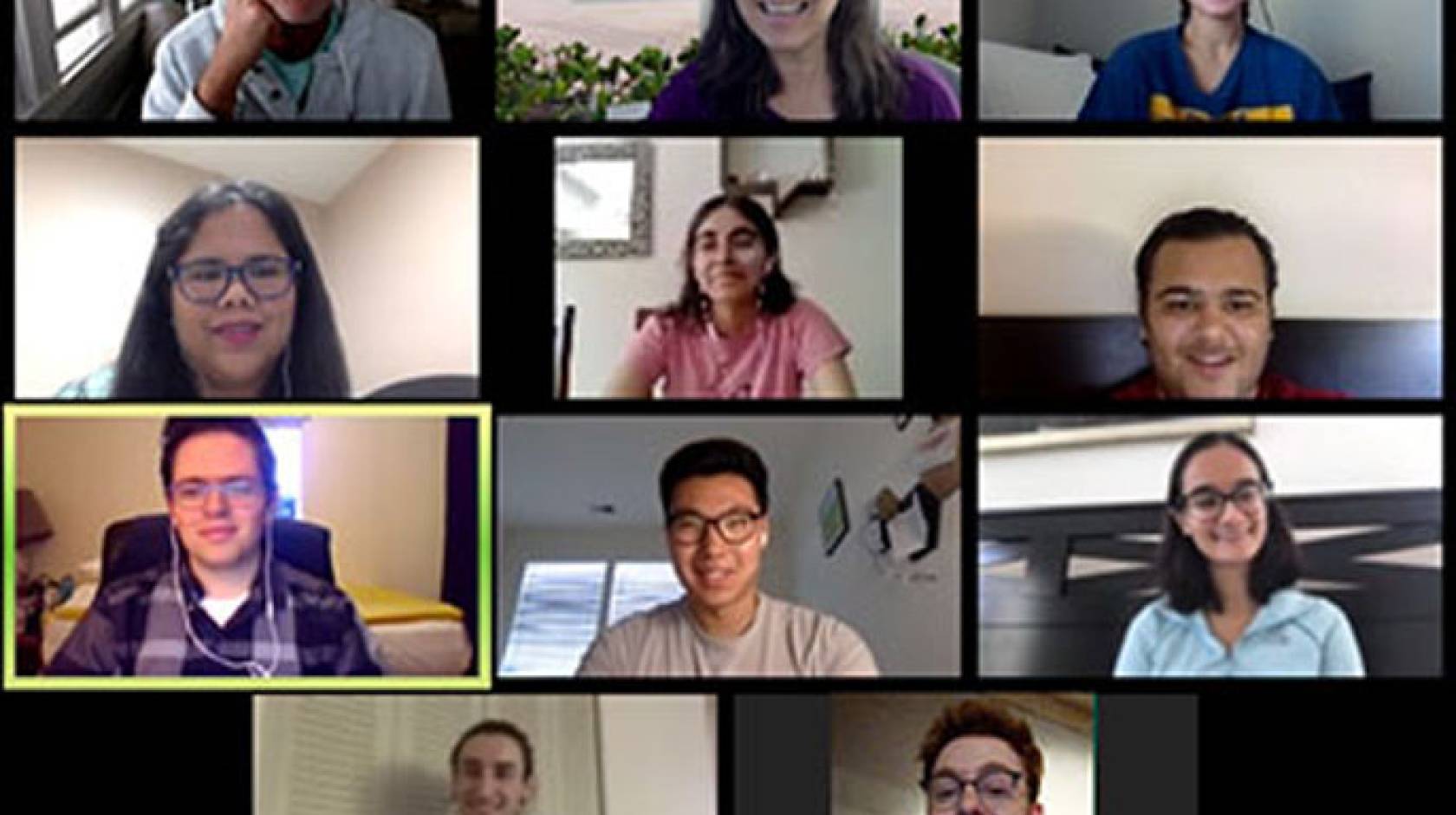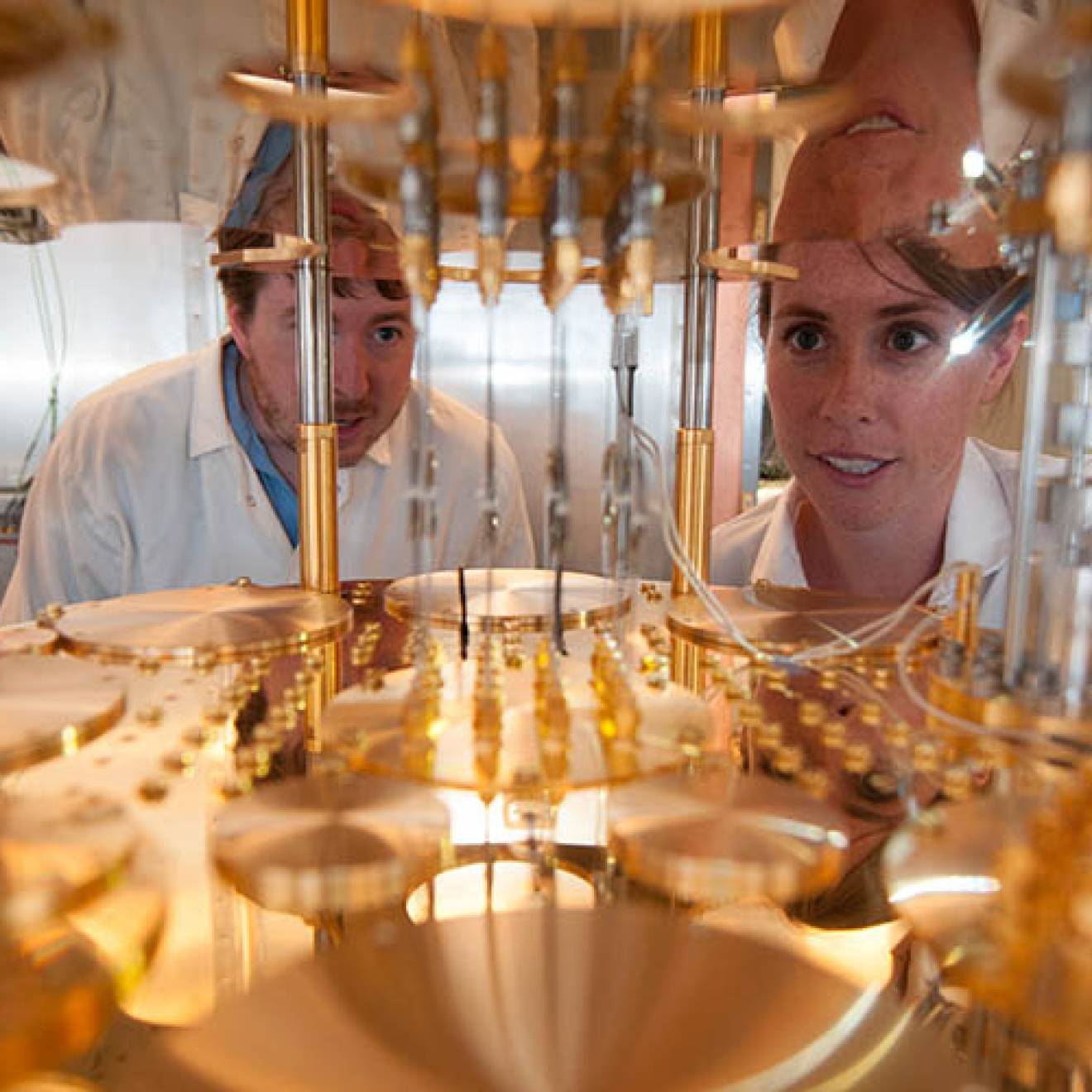Dan White, UC Santa Cruz

An estimated 7.5 million small businesses in the United States face extinction because of the COVID-19 crisis that has forced them to shutter their operations. Many have minimal websites and e-commerce capabilities, or none at all, making it difficult to transition to online operations.
But UC Santa Cruz students are hoping to keep local Santa Cruz businesses from that grim fate. They're part of a unique nonprofit program called GetVirtual, which doubles as an online entrepreneurship course and a nonprofit consulting firm pairing students with local businesses that were thriving before the virus hit, but are now struggling to make the transition from foot-traffic to online orders and sales.
The 10 students function as interns for 15 area businesses, working closely with store owners to help them conduct their sales, operations, and marketing virtually. Demand for their services is high, with more than 50 businesses seeking help from GetVirtual. The program’s scope has been expanding, with GetVirtual partnerships starting at CSU Monterey Bay and Stanford University.
GetVirtual founder Toby Corey, an entrepreneur, Stanford lecturer, and former executive of Tesla, serves as a guiding voice and a high-profile mentor with strong industry connections. He envisioned GetVirtual.org as a nonprofit community partnership connecting local industry experts and mentors with UC Santa Cruz students, with help from the city of Santa Cruz’s economic development program.
The students take an intensive course taught via Zoom by lecturer, broadcaster, and multimedia artist Nada Miljković, who quickly recruited undergrads for the course.
“These undergrads are the best students I’ve taught in the year,” said Miljković, who is also a lecturer at Stanford University. "The first day we did assessments. I asked them, 'Which businesses do you want to work with? What is your passion? What are the things you love to do?’"
Businesses that wish to work with GetVirtual reach out to the partnership online. The founders and the students vet the businesses, making sure that the companies are the right match for GetVirtual and its services. GetVirtual is most interested in those that need help the most.
GetVirtual would be less inclined to work with a company with more complicated requests.
“For example, we wouldn’t build a big company a $10,000 website for free,” Miljković said. “We are picking the lowest-hanging fruit. We want to help the most businesses as possible. If a business needs a lot of programming that we don’t have the skills for, we’ll refer them to a professional.”
Receiving mentorship from the younger generation

Credit: iStock/RiverNorthPhotography
The students are paired with local businesses to help redesign their websites for e-commerce, product delivery services, curbside pickup, and other features that can help them stay afloat during these days of curtailed tourism, which was a lifeline for many local shops.
In these partnerships, the younger generation are mentors for business owners who are old enough to be their parents, or, in some cases, their grandparents. Technological fixes come naturally to these students, who relish the chance to keep these businesses viable. And many of the interns have a large bag of tricks at their disposal.
“We are bringing together multiple technologies to the fore, including templatized web design, integration of point-of-sales systems and online payments channels, listing product catalogues on virtual marketplaces, and many other such plug-ins to cloud-based platforms,” said GetVirtual student intern Anagha Vijay (Crown, ‘22, computer science), who has been partnering with Beach Street Pizza and Bar and Pacific Cookie Company.
“It’s kind of like that old saying, ‘Give a man a fish and he’ll eat for a day. Teach him how to fish, and he’ll eat for the rest of his life,'" said GetVirtual’s operating officer Arin Spanner (Crown '20, business management/psychology), who has been working closely with Home/Work, a Soquel-based home furnishing shop. “When we make sure these small businesses can deliver services during the pandemic, we give them the tools to sustain themselves.”
The GetVirtual partnerships are easily duplicated, Spanner said. With input from other GetVirtual interns, Spanner recently contributed an op-ed piece to Monterey Bay region tech resource Santa Cruz Tech Beat in which he described these partnerships as “turnkey operations that any college can ‘pull off the shelf, and just add water,’ complete with everything we’ve developed—systems, methodologies, and tools, combined with our institutional knowledge that enables colleges to easily adopt the GetVirtual course, add an instructor, partner with local economic development groups, and engage with local small businesses and extend their business virtually.”
For Spanner, working with Santa Cruz businesses such as Home/Work has been so rewarding that it has influenced his long-term career goals.
“High-powered businessmen and high-frequency traders make a lot of money,’’ he said. “But this has opened me up to the ways that business acumen and skills can be used for helping others. I really like (the small business owners). They’re good people. These businesses are not only the proverbial backbone of the Santa Cruz economy. They’re also the heart and soul.”
‘Tapping into brainpower and ingenuity’
The partnership has been just as rewarding to Home/Work’s owner Sonia McMoran. Pairing up with GetVirtual interns is “a wonderful way to use the intelligence that we have at our fingertips, with all these incredibly smart students at UC Santa Cruz. Now there’s a way to tap into all that brainpower and ingenuity.”
The pandemic made McMoran realize just how many obstacles she faced. In her conversations with Get/Virtual, she made this point clear. She understood design and aesthetics, “but what about the nitty gritty? What about the back end? How do I optimize the site to get traffic to the store? How do I engage with customers and keep them (on the Home/Work site)?”
At first she wondered just how much a group of college students could assess and address the store’s challenges.
“They are not my ideal customer, not my demographic,’’ she said.
But the students’ savvy and practical insights turned her into an instant believer. McMoran, like many business owners, is pressed for time. She has just one employee to help run the business, and is homeschooling her 9-year-old son. She wanted to look into options to expedite filling and delivering orders “but the research can get overwhelming. I didn’t have the time or the mental bandwidth. The fact that GetVirtual could hear me out about the problem, do the research for me, and give me my top three choices, with pros and cons for each of them, was amazing.”
Training entrepreneurs
The Get/Virtual internships are part of a thriving entrepreneurship training program based at Crown College.
“GetVirtual internships represent service learning at its best,” said Crown College Provost Manel Camps, an assistant professor in microbiology and environmental toxicology. “They give our students the opportunity to implement the concepts they learned in class to make a real difference in the world, in the process connecting the university with its surrounding community in a meaningful way.
“Note that this work is all done in teams that are getting feedback at multiple points, modeling effective teamwork,” Camps continued. “This is a transferable skill that will serve our students well in any career. I wish we could do something like this for every program on campus.”
That problem-solving philosophy and teamwork has made an oversized impact for Pacific Trading Company, a fashionable downtown Santa Cruz boutique that faced an uncertain future after it had to close its doors early on in the COVID-19 pandemic.
GetVirtual helped the business transfer its long-standing tradition of in-person appointments to the online realm. Soon, customers will be able to use an online scheduler, including a “style quiz" that helps Pacific Trading Company’s staff zero in on what they are looking for.
“We then pre-shop for them and present a curated collection just for them on Zoom,” said Pacific Trading Company owner Rama Zoe Heinrich. “Our unofficial launch has been super fun and successful.”
In fact, the company is so impressed by the success of its “virtual” appointments that it plans to retain them, along with in-store appointments, even when the crisis has passed.
“This will be a new tool for us for moving forward once we are able to open and find our new normal in retail,” Heinrich said.

